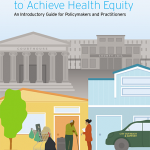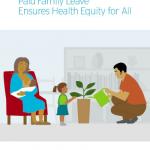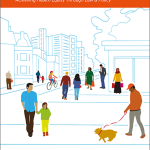Policymaking for Fair Labor Practices
Episode 2: Equitable enforcement & worker rights to support healthy families
What policy interventions can advance a more equitable economy that supports the needs of children and families?
How can we promote community-centered decision making to help close the enforcement gap and ensure labor protections for all workers?
For parents and caregivers, the ability to pay bills, maintain stable housing, access health care, and keep children in school can be severely affected by unfair labor practices. Wage theft, job loss, or lack of paid sick leave can lead to chronic stress, intergenerational trauma, and poor health and developmental outcomes for parents and their children.
Low-wage workers — who are predominantly Latinx, Black, and female — experience the highest rates of workplace violations. These long-standing inequities have been exacerbated by the COVID-19 pandemic; many low-wage essential workers are forced to choose between their health and their livelihood.
In this 75-minute webinar, our panelists explore systemic solutions and policy interventions to promote safe and stable employment and advance an economy that supports the needs of children and families. Speakers focus on how to use collaborative partnerships and community-centered decision making to promote and implement enforcement strategies that serve workers and their communities.
This webinar is for anyone who is interested in equitable enforcement and fair labor standards — including policymakers, enforcing officials, community groups, and attorneys. Learn how equitable policy can benefit children and families.
Speakers
- Holly Magdziarz, senior attorney, ChangeLab Solutions (moderator)
- Jenn Round, director, Beyond the Bill, Workplace Justice Lab at Rutgers University
- Elizabeth Wagoner, deputy commissioner, New York City Office of Labor Policy & Standards
- Sharon Terman, director, Work & Family Program, and senior staff attorney, Legal Aid at Work
Highlights
Underenforcement. In marginalized communities, underenforcement can be a significant challenge. Enforcement of labor violations is often complaint-based, placing employees at risk for retaliation. Even when policies exist to protect workers against retaliation, they often go unenforced. ―Holly Magdziarz
Complaint-based enforcement overlooks workers in some of the industries with the most violations. The private households industry — which employs domestic workers and some home health workers — has the highest rate of violations and the lowest rate of complaints. A study in San Francisco found that for every minimum-wage complaint in this industry, there were 1,327 violations. ―Jenn Round
Complaint-based enforcement. We've seen repeatedly that complaint-based enforcement overlooks workers in some of the industries with the most violations. For instance, the private households industry — which employs domestic workers and some home health workers — has the highest rate of violations and the lowest rate of complaints. A study we did in San Francisco found that for every minimum-wage complaint in this industry, there were 1,327 violations. ―Jenn Round
Mediation. A guiding principle for us is ensuring that the ways we're enforcing the law are responsive to community needs. Litigation is not always how employees want to approach an issue. The National Domestic Workers Alliance came to us wanting a non-adversarial way to tackle workplace disputes, so we created a domestic worker mediation program that preserves the employment relationship. We're really excited about it as a different approach that’s meeting a community need. ―Elizabeth Wagoner
A guiding principle for us is ensuring that the ways we're enforcing the law are responsive to community needs. The National Domestic Workers Alliance came to us wanting a non-adversarial way to tackle workplace disputes, so we created a domestic worker mediation program that preserves the employment relationship. ―Elizabeth Wagoner
New tools. During COVID, we've seen some promising efforts and opportunities. In California, labor, health, and community organizations collaborated to create a worker-centered online navigator that brings together all of the COVID-related worker rights in one place. I think this is something we can really learn from and apply broadly. ―Sharon Terman
Just cause laws. A positive legal change in New York is a 2021 law requiring an employer to have just cause to terminate a worker. The law makes it very hard to fire a worker in retaliation. In those cases, we can get an employee back to work very quickly because we don't have to prove retaliation; instead, the employer has to prove they had cause to terminate. Those are very powerful protections. ―Elizabeth Wagoner
Webinar Recording
This webinar is the second episode in our 2023 series Equity in Action: Policymaking for Community Health. Listen to the recording:
Resources
Beyond the Bill, Workplace Justice Lab at Rutgers University, Labor Standards Enforcement Toolbox




